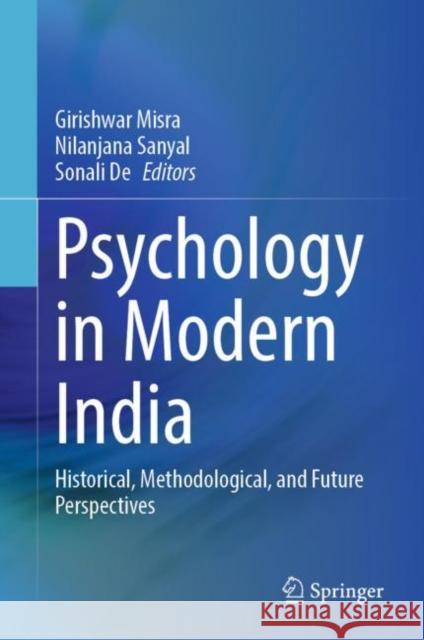Psychology in Modern India: Historical, Methodological, and Future Perspectives » książka



Psychology in Modern India: Historical, Methodological, and Future Perspectives
ISBN-13: 9789811647048 / Angielski / Twarda / 2021 / 768 str.
Psychology in Modern India: Historical, Methodological, and Future Perspectives
ISBN-13: 9789811647048 / Angielski / Twarda / 2021 / 768 str.
(netto: 575,06 VAT: 5%)
Najniższa cena z 30 dni: 578,30
ok. 16-18 dni roboczych.
Darmowa dostawa!
"The book is very rigorous, and well-researched. ... It is recommended for all students, teachers, researchers ... . This book is also a must-read for anyone in India who is trying to create a professional identity and develop a sense of community belongingness. Policymakers can use this book to translate the ideas and reflections of eminent Indian psychologists ... . This book can be considered a milestone in the continuing quest for constructing the history of psychology in modern India." (Vanita Sondhi, Psychological Studies, Vol. 67 (4), October-December, 2022)
This book offers a critical account of the conceptual, theoretical, and methodological developments in key areas of psychology in India, providing insights into the developments and advances as well as future directions. Filling an important gap in the literature on the history of psychology in India, it brings together contributions by leading scholars to present a clear overview of the state of the art of the field. The thematic parts of the book discuss the historical perspectives: development of psychology in India; research methodologies in the West and India; future directions for research in the field. The book is of special interest to researchers, school administrators, curriculum designers, and policymakers.
1997-2026 DolnySlask.com Agencja Internetowa
KrainaKsiazek.PL - Księgarnia Internetowa








